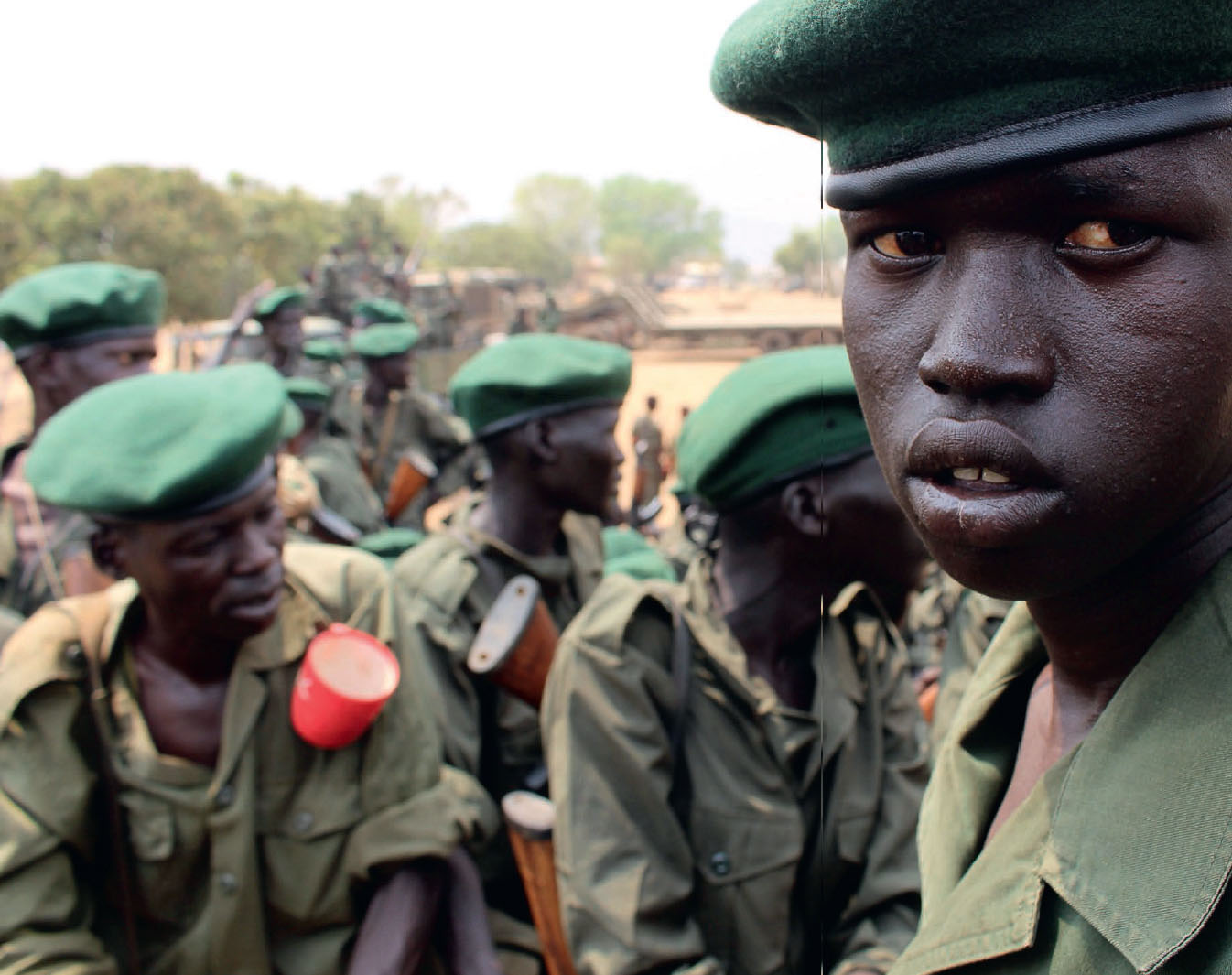“This is a rich country, like Europe. What went wrong?” In an anarchic refugee camp in South Sudan, hundreds of miles from the capital Juba, an old man named Francis singled me out. United Nations helicopters zoomed above our heads, almost drowning out his voice. Passing us in the mud alley, young children carried buckets of dirt on their heads to plug up holes in their makeshift homes, while others played in the trenches of dirty water that ran like a grid through the camp. The smell of sewage was unbearable.

Soldiers from the Sudan People’s Liberation Army (SPLA) prepare to withdraw from Juba in February in accordance with the terms of a peace agreement between the government and the opposition signed in August 2015
© SAMIR BOL/AFP/GETTY IMAGES
South Sudan is the newest country on earth. It was hoped that its creation in 2011 would bring stability and peace. But these ambitions have not been realised and in the sprawling camp, Francis was trying to make sense of what had happened to him and to his country. After 25 years of living in Khartoum, the capital of Sudan, he had decided to return to the south, where he was born. There, rather than a welcoming homeland he found a brutal sectarian war. He fled, ending up near the city of Malakal in a camp under the protective shadow of a UN military base which, he said, made him feel “like I am in jail.” But if he went back to where he had lived in South Sudan, “All of my belongings would be stolen, and I would be taken to a corner and killed… It’s my own brother in South Sudan who could shoot me in the back of the head.”